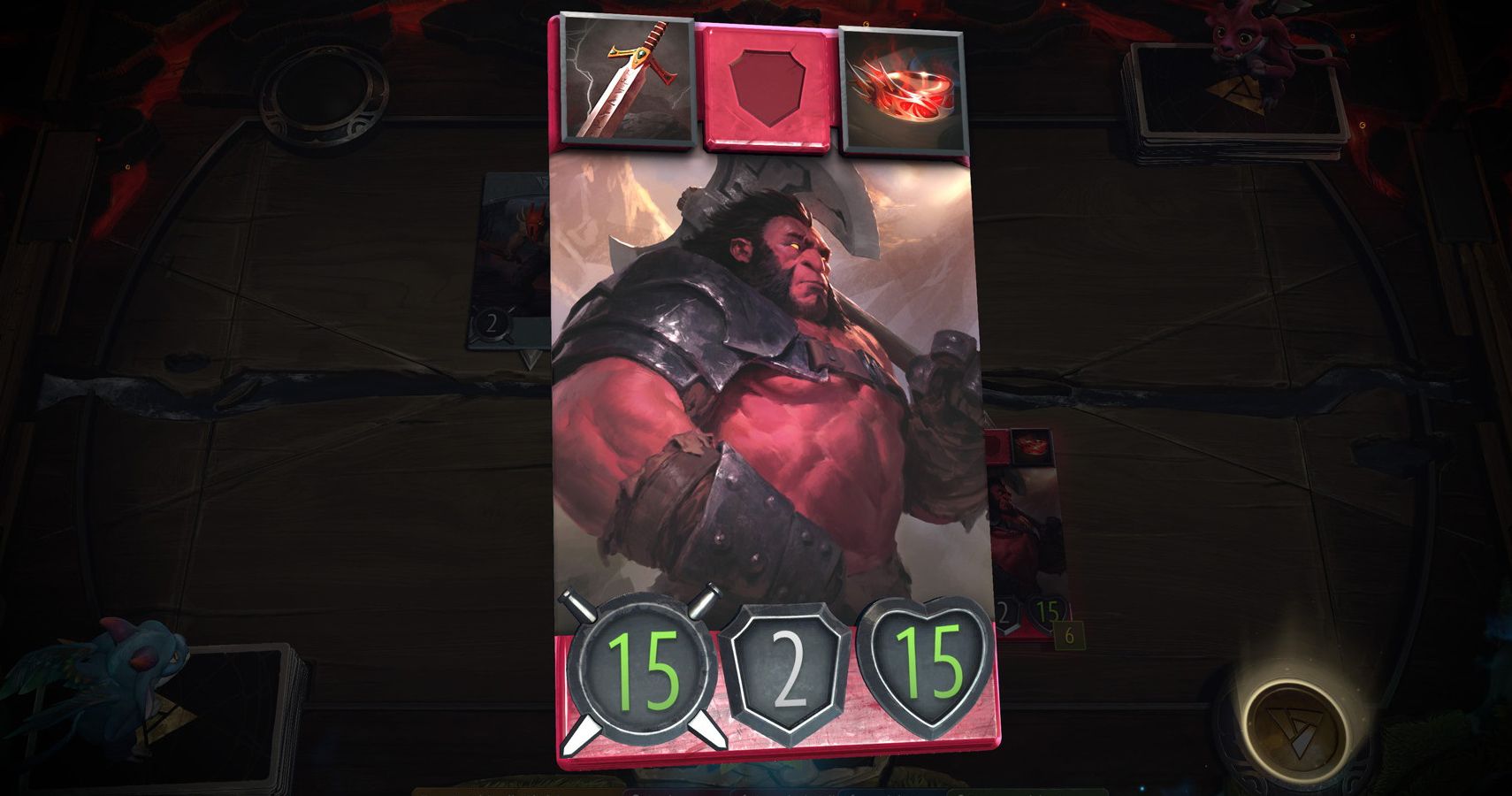Valve’s first major video game release in roughly five years, Artifact, is available now through Steam for $19.99 USD. If you’re looking to get a leg up on the competition in the digital trading card game, it could cost you a pretty penny.
As of this writing, one of Artifact’s most expensive cards called, “Axe,” is nearly as expensive as the game itself, currently sitting at a price of $19.39 USD on the Steam Community Market.
At one point, the rare hero card - boasting the impressive stats of 7 attack, 2 armor, and 11 health - was actually more expensive than the game, selling for around $21 USD.
For those unfamiliar with the dynamics of the latest digital trading card game, Artifact is - in essence - a tabletop version of Dota 2. Unfortunately, the association with the popular MOBA title didn’t help much in terms of Artifact gaining positive reception in the build-up to its release. Tack on an added bit of controversy around the naming of a particular card, and not much has changed since the game’s release, as Artifact currently sits at a status of “Mixed” for player reviews on Steam.
RELATED: Valve's Artifact Wisely Changes Name Of 'Crack The Whip' Card That Affected 'Black Heroes'
Currently sitting at a Metacritic rating of 77, the game itself has received praise for its depth, design, strategy, and the overall way that it separates itself from other digital trading card games, such as Hearthstone and Magic: The Gathering.
The primary complaint with Artifact is its monetization system, which essentially justifies the sensible $20 price tag. While spending money on collectible trading card games is pretty standard these days, you’ll need to shell out a considerable amount of cash to build a competitive deck in Artifact. In fact, Ville Kilkku of PCGamer.com estimated that a full Artifact card collection would take somewhere between $200 and $300.
The discussion on digital trading card game prices is an interesting one to follow, primarily considering the argument that physical trading card games would likely warrant a heftier price tag than digital games, in which players can essentially unlock cards if they are willing to devote countless hours to playing the game.
It will be interesting to see how well Artifact fares in the long run, and whether or not community outcry will have any effect on the pricing model currently in place.
READ NEXT: GameStop Reports Loss Of $488 Million In Third Quarter


